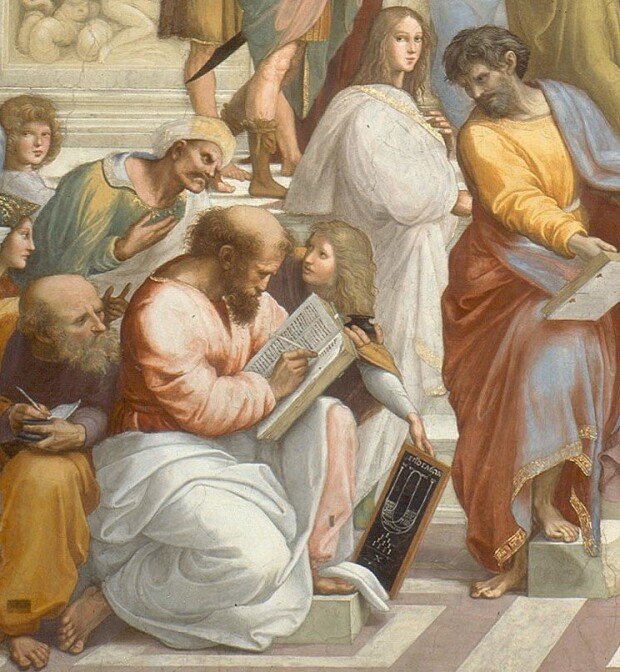Fathers of mathematics
Fathers of mathematics
Posted December. 14, 2023 08:13,
Updated December. 14, 2023 08:14

Mathematics is not only the most critical subject in South Korea’s college entrance exam but also leaves the largest number of students so frustrated that they end up giving up on it. Not surprisingly, it is a major frustration in the college admissions system, where students are supposed to solve difficult problems as quickly and accurately as possible in time. Then, who on earth invented math? What is the point of learning math?
Generally speaking, Pythagoras and Archimedes are acclaimed as the fathers of mathematics. “The School of Athens,” painted by Raffaello Sanzio, one of the three greatest Renaissance artists, portrays the two mathematicians. This painting on the walls of the Sistine Chapel shows great figures who represent the roots of Western academics, such as Plato and Aristotle. It is an imaginary scene with these masters from different times and regions.
Pythagoras and Archimedes capture attention. On the front left side is Pythagoras of the 6th century BC. Surrounded by his young followers, this bolding master jots down something on a thick book. He may be engrossed in proving the Pythagoras theorem. Archimedes is depicted as a young man holding a blackboard to his mentor. He shows the drawings of the Archimedes Principle. It is a widely known story that he discovered the law of buoyancy, leaped straight out of the bath, naked, and shouted, “Eureka!” The artist might have wanted to depict how excited he was about his discovery and how much he would have wished to be acknowledged by the great senior scholar who lived several centuries earlier. Pythagoras sought to find the roots of things in numbers and believed that the law of numbers explains how the universe moves. Pythagoras is the one who named the universe cosmos that indicates its nature or order.
Math requires asking questions, reasoning, and proving statements. It works just as philosophy does. That is why ancient mathematicians engaged in philosophy as well. As such, learning math focuses on pondering problems and taking every step on a journey to the right answer. Occasionally, two heads are better than one. This is how math has contributed to the world. If merely getting a couple of questions wrong drags you down, let’s not call it math.







